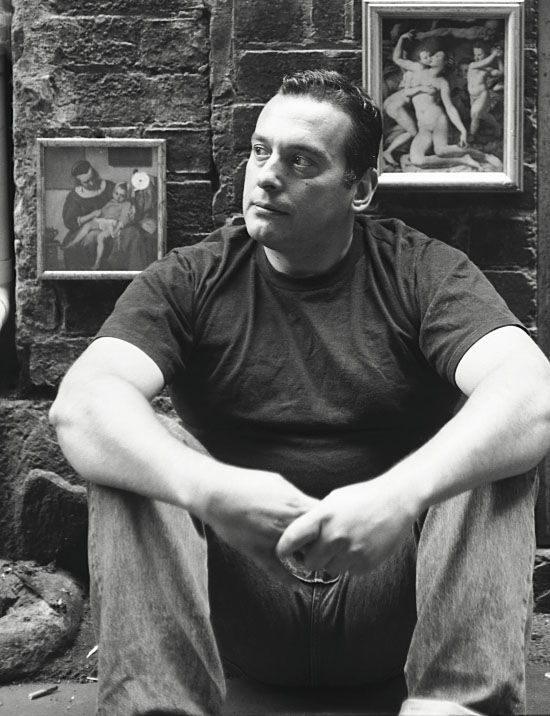Christos Tsiolkas
 | Christos Tsiolkas
It occurred one late summer when I was around eight years old. One Sunday afternoon, my father took my younger brother and I for a long walk. We crossed the Studley Park Bridge, crossed the river from Richmond into Kew. We continued through the parklands, meandered down suburban streets till we reached the Junction and then continued through the back streets to Barkers Road. My father must have been tired by then and he pointed to a cathedral on a ridge surrounded by an expanse of park and ovals. He took a seat on the grass and watched as my brother and I took turns to roll down a small hill. An aggrieved man, running towards us from the direction of the church, interrupted our game. Breathless, he came up to us and demanded we leave. This is a private school, he kept repeating, you have no right to be here. My father apologised, explained that he thought we had happened along a public park. The man shook his head violently and pointed towards what we had mistaken for a cathedral. No it isn't, he explained, that is the school. He pointed round the green park and ovals. All of this is private property. Many years later I discovered that the name of the school we had stumbled across was Xavier College. This is a private school, you don't belong here. In this one sentence the man articulated what I now understand to be the paramount difference between public and private education. I am not interested in a discussion of the advantages and disadvantages of one form of schooling over the other. The one form, private, is exclusionary, secretive, separate and disengaged from the common wealth (though, scandalously, it increasingly demands more and more access to the tax money that flows from the public purse); it plays no part in questions of the social, economic and common good. The health of private education says nothing about the kind of society we have and therefore the status of private education has no relevance for determining the nature of the democratic and civil character of our society. It has nothing to say to us. It is by examining the status of public education that we can begin assessing the kind of society we exist in, the kind of society we are creating. In this sense - in this social sense - private education is irrelevant. I believe that a strong, dynamic, fully resourced public education system is essential to a functioning pluralist democratic culture. On this count I believe that in degrading public education over the last quarter century, a succession of Labor and Liberal Governments, both State and Federal, stand indicted for a betrayal of the democratic and social good. They have failed us, all of us. It is shameful. Let us cease comparing apples and oranges. Those of us - parents, government ministers and bureaucrats, public intellectuals and media commentators, teachers - who want public schools to become more like "private schools" are also participating in this betrayal. What we need to fight for, argue for and to defend are exactly those qualities of public education that are not found in the private system: inclusivity and diversity; a commitment to the pastoral care of all students regardless of their abilities or their status; an education founded on mutual respect and exchange rather than rivalry and exclusion. This is why students from the public system make better citizens than private educated students. This is not to argue that there are not issues and problems to do with teaching and pastoral care in our public schools. How can this not be so after decades of systematic betrayal? But these problems cannot be solved by methods taken from the private sector. On these issues and problems the market has nothing to say to us because the market is disinterested in them. I owe my ethics, my vocation, my writing, my sense of self and my sense of social self to my education through the public system. I am therefore duty bound to defend the democracy of the public system over the narcissism and sense of entitlement inoculated in the private system. It is precisely because I went through the public education system that I understand this responsibility. For those who don't share this history and a relationship of participation to public education I ask of you DON'T take our money, DO NOT presume you have the right to dominate or intervene in the debates over education and the state. You have, through your choices, decided to opt out of participation in the common good. This is a public debate, you don't belong here. |